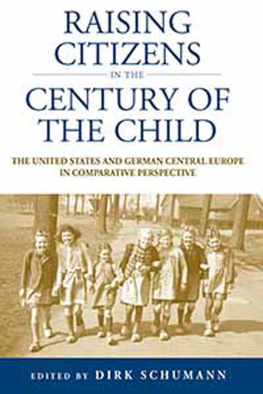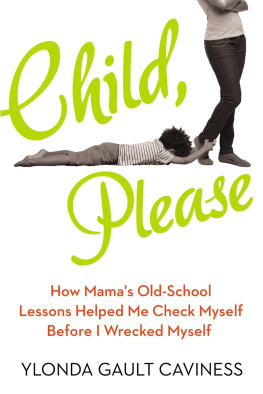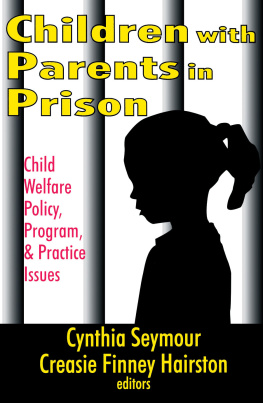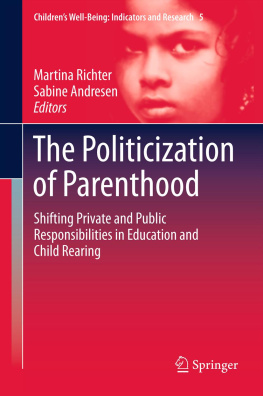Raising Citizens in the Century of the Child
Studies in German History
Published in Association with the German Historical Institute, Washington, DC
General Editors:
Harmut Berghoff, Director of the German Historical Institute, Washington, DC
Uwe Spiekermann, Deputy Director of the German Historical Institute, Washington, DC
Volume 1
Nature in German History
Edited by Christof Mauch
Volume 2
Coping with the Nazi Past: West German Debates on Nazism and Generational Conflict, 19551975
Edited by Philipp Gassert and
Alan E. Steinweis
Volume 3
Adolf Cluss, Architect: From Germany to America
Edited by Alan Lessoff and Christof Mauch
Volume 4
Two Lives in Uncertain Times: Facing the Challenges of the 20th Century as Scholars and Citizens
Wilma Iggers and Georg Iggers
Volume 5
Driving Germany: The Landscape of the German Autobahn, 19301970
Thomas Zeller
Volume 6
The Pleasure of a Surplus Income: Part-Time Work, Gender Politics, and Social Change in West Germany, 19551969
Christine von Oertzen
Volume 7
Between Mass Death and Individual Loss: The Place of the Dead in Twentieth-Century Germany
Edited by Paul Betts, Alon Confino and Dirk Schumann
Volume 8
Nature of the Miracle Years: Conservation in West Germany, 19451975
Sandra Chaney
Volume 9
Biography between Structure and Agency: Central European Lives in International History
Edited by Volker R. Berghahn and Simone Lssig
Volume 10
Political Violence in the Weimar Republic, 19181933: Fight for the Streets and Fears of Civil War
Dirk Schumann
Volume 11
The East German State and the Catholic Church, 19451989
Bernd Schaefer
Volume 12
Raising Citizens in the Century of the Child: The United States and German Central Europe in Comparative Perspective
Edited by Dirk Schumann
RAISING CITIZENS IN THE CENTURY OF THE CHILD
The United States and German Central Europe in Comparative Perspective
Edited by
Dirk Schumann
Published in 2010 by
Berghahn Books
www.berghahnbooks.com
2010 Dirk Schumann
First ebook edition published in 2011
All rights reserved.
Except for the quotation of short passages
for the purposes of criticism and review, no part of this book
may be reproduced in any form or by any means, electronic or
mechanical, including photocopying, recording, or any information
storage and retrieval system now known or to be invented,
without written permission of the publisher.
Library of Congress Cataloging-in-Publication Data
Raising citizens in the century of the child : the United States and German Central
Europe in comparative perspective/ edited by Dirk Schumann.
p. cm. (Studies in German history; v. 12)
Includes bibliographical references and index.
ISBN 978-1-84545-696-2 (hbk. : alk. paper)
1. ChildrenUnited StatesSocial conditions20th century. 2. Children
GermanySocial conditions20th century. 3. ChildrenGovernment policy
United StatesHistory20th century. 4. ChildrenGovernment policy
GermanyHistory20th century. 5. CitizenshipUnited States. 6. Citizenship
Germany I. Schumann, Dirk.
HQ792.U5R343 2010
306.8740943dc22 2010013220
British Library Cataloguing in Publication Data
A catalogue record for this book is available from the British Library.
ISBN 978-1-84545-696-2 Hardback
ISBN 978-1-84545-999-4 Ebook
CONTENTS
Dirk Schumann
Sonya Michel, with Eszter Varsa
Katharine S. Bullard
Andrew Donson
Ellen L. Berg
Carolyn Kay
Rebecca Jo Plant
Till van Rahden
Charles A. Israel
Tara Zahra
Dirk Schumann
Lynne Curry
LIST OF ILLUSTRATIONS
Every effort has been made to trace the copyright holder and to obtain permission for use of these images.
Introduction
CHILD-REARING AND CITIZENSHIP
IN THE TWENTIETH CENTURY
Dirk Schumann
When West German chancellor Willy Brandt proclaimed in his inaugural address in 1969 that the school of the nation was the school, he confirmed for the Federal Republic what progressives in the US had already emphasized at the beginning of the twentieth century: school education was not just about imparting knowledge; it was also the chief instrument to instill in young people those very values that would enable them to be proper citizens of their nations in the future.1 Preconditions for this to happen were better than ever before, as mandatory school attendance was widely enforced and young people spent an increasing number of years in this institution.
School, however, was not the only public agency dealing with children that increased its influence over the course of the century. As advanced industrialized states became welfare states, they supportedand controllededucation in and outside the family to an unprecedented degree. Starting around 1900 and picking up speed in the wake of the First World War, a host of reformed and novel institutions disseminated knowledge about child-rearing and hygiene, provided health services and material benefits, and took care of young people considered deviant. Experts from a growing range of disciplines staffed these institutions and also offered advice on child-rearing to an increasingly receptive readership. Thus, the private and the public spheres came to be intertwined in a novel way in the twentieth century. Extended schooling and new services expanded citizenship rights for the young (and their parents) and provided the basis for a more active participation in society. However, they also left out certain groups, served the purpose of control as well as that of agency, and incurred the unintended consequences of bureaucratization. Hence, their overall effect turned out to be limited and ambiguous.
In 1900, Swedish feminist reformer Ellen Key had hoped for a century of the child in which children would be brought up in a sheltered environment by devoted mothers and fathers. This did not become the norm, and states went far beyond the supporting role Key had envisaged.2 It is the purpose of this volume to explore the complex relationship between attempts to improve child-rearing, child welfare, and education and their results in German Central Europe and the United States in the twentieth century. Raising children now meant raising (future) citizens in a much more systematic and comprehensive way than before. Three aspects are of key interest in the contributions to this volume: the guiding principles, norms, and values of citizenship over the course of the century; the expansion and limits of citizenship rights; and the political, social, and cultural practices employed to implement ideals and fight for rights.













